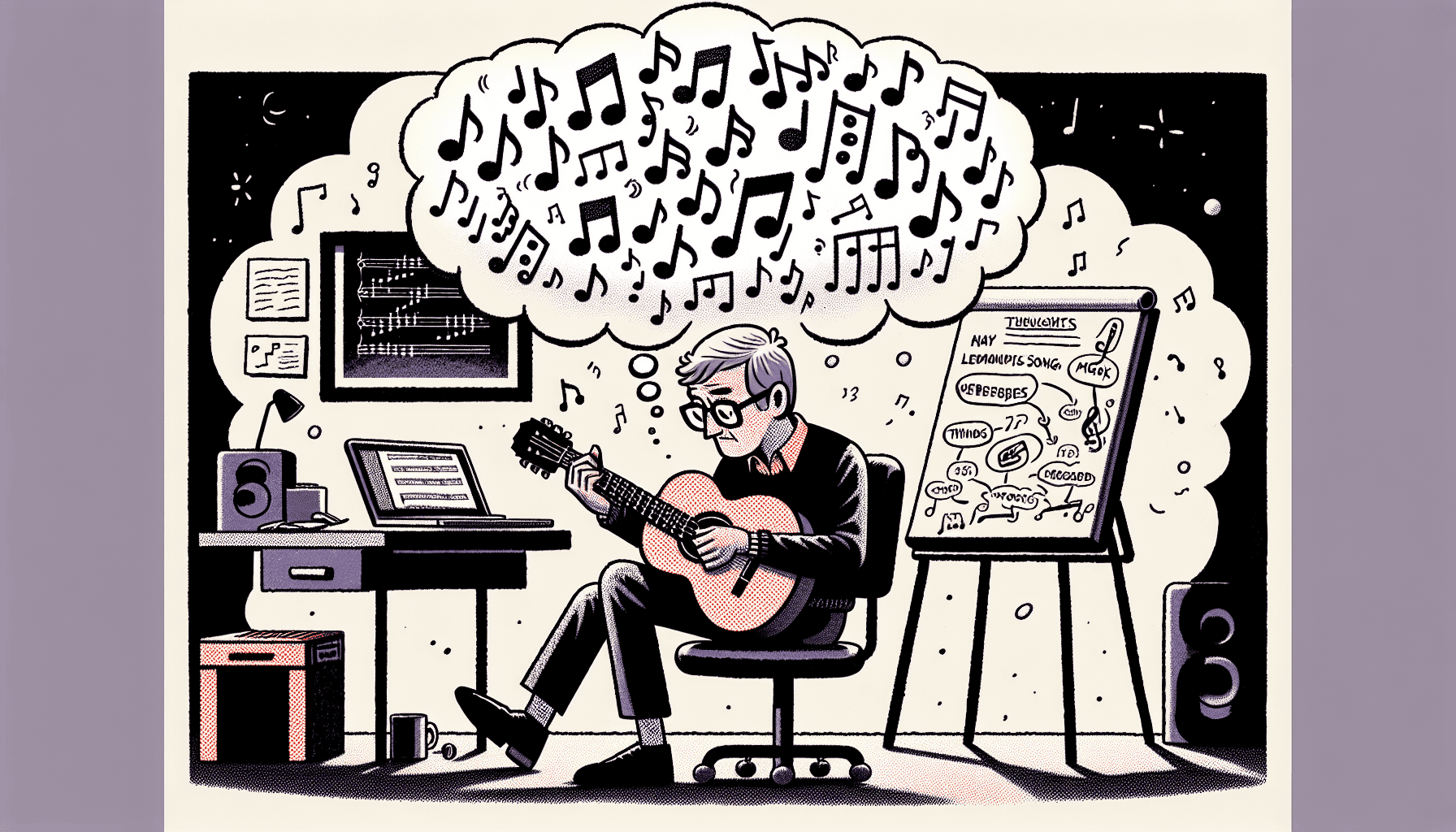
Do you wish to quickly memorize songs on the guitar? Remembering songs is crucial for any guitarist, whether you play in a band or just for fun at home. Knowing a song by heart lets you improve in many ways and makes playing much smoother and more enjoyable.
I'll share with you a straightforward method I use to learn and remember songs. But before we dive into that, let's have a quick talk about memory.
The Three Memory Types

1) Body-Mind Connection: Muscle Memory
Muscle memory helps you automatically play a chord or a series of chords. Your fingers just know how to move to hit that G chord or how to type words without needing to glance at the keyboard. It's all about practicing the same thing many times.
However, muscle memory isn't everything. Being in new situations or feeling distracted can mess with your focus. Imagine someone getting stage fright. It's not that their fingers forget what to do; it's their mind that's getting in the way.
2) Ear-Mind Connection: Auditory Memory
Auditory memory is exactly what you might think: you hear something, and then you remember it. It's like when a song or tune just won't leave your head. This often happens after you've listened to a song many times or played it repeatedly. Auditory memory helps link what we hear to our muscle memory, so we can play the tunes we remember.
3) Active Thinking or Cognitive Memory
Now, let's talk about cognitive memory. Unlike muscle and auditory memory, cognitive memory requires more active thinking. It's about understanding the key of a song or getting to grips with a new chord progression where you might not automatically know what comes next. That's why I always stress learning common chord progressions—it really helps to lean more on your muscle and auditory memories.
In a perfect world, you wouldn't need to depend too much on cognitive memory once you're well-practiced. The more you have to think about what you're playing, the less you're using your muscle and auditory memories, essentially your playing "instincts."
However, all three types of memory do come together, particularly when you're picking up a new song.
The Fastest Way To Learn A Song On Guitar

Keep in mind that how quickly you can memorize a song depends on your experience and skill level. Intermediate players often pick up new songs much quicker than beginners. Also, remember that there's a difference between memorizing a song and being able to play it well. But knowing what you're supposed to play definitely makes practicing more effective.
Step 1: Cognitive Memory
First off, we're focusing on cognitive memory. Before even strumming a chord, take a moment to understand the song intellectually. Identify the key it's in. Look for any common or repeating chord patterns, which will simplify the learning process.
Next, think about how you can break the song down. Where are the verses, the choruses, and the bridge? Consider dividing these sections into even smaller parts if it helps.
Step 2: Auditory Memory
Then, it’s time to use your auditory memory. Listen to the song carefully and try playing along. As you do, connect what you're hearing with the key and chord patterns you've identified. You might notice some patterns you didn’t pick up on initially. Play through the whole song a few times, and break it down into sections if necessary.
Step 3: Muscle Memory
And now, just keep practicing! The more you practice, the stronger your muscle memory will become.
Proven Song Learning Hacks

1. Begin with easy songs. The simpler, the better, for starters. As you get more comfortable, start tackling songs that are a bit more challenging. Like any skill, the more you practice learning and memorizing songs, the better you'll get at it.
2. Jot down the chord progressions on paper. Writing something down by hand creates a stronger memory connection than just reading or typing it out.
3. Think through the song before playing it. Some musicians prefer to familiarize themselves with the tune thoroughly, listening several times over before touching their instrument. Getting the song fixed in your mind (auditory memory) simplifies the learning process. If you can hum the tune, you're on your way to playing it.
4. Look for the patterns. You may identify a common chord progression in the song. Often, you'll find the same chord progression repeats exactly or almost exactly. Recognizing these patterns and repeating sections saves a lot of time and brain power.
5. Concentrate on your practice. The quieter and more free from distractions your practice area is, the more productive your session will be.
6. Take it slowly at first. When learning a new song, I like to play it at a slow pace until I've got it down smoothly, then gradually increase the speed to challenge myself. Rinse and repeat.
7. Keep at it. The more you practice a skill, the sharper it becomes. Regularly learn new songs and practice these memory techniques. When you feel confident, try recording your playthrough. A simple phone or computer setup works fine for this. It's an excellent way to critique your performance; it'll highlight both your strong points and areas needing improvement.
So give these tips a shot with a new song, and be patient with yourself. I've found these strategies really effective throughout my time playing the guitar.
If you’re not sure where you should be spending your time practicing, sign up for my FREE guitar success checklist. Just answer a couple questions, and you’ll get a personalized report with recommendations. I’ll tell you where you’ll get the most bang for your buck to develop your skills more quickly.
